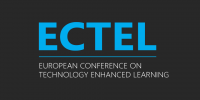
Nineteenth European Conference on Technology Enhanced Learning
Inclusive and equitable quality education for all
Krems, Austria, 16-20 September 2024
Conference Theme
Role of TEL to ensure inclusive and equitable quality education for all
In a world undergoing rapid transformation due to technological advancements (e.g., Generative Artificial Intelligence, the Internet of Things, and Connectivity Technologies), the education landscape is also expanding with new possibilities. However, these advancements bring complex challenges, including effective adoption of technology in educational settings, ethical concerns, and the possible digital divide these technologies could create. Therefore, the theme for the 2024 conference aims to investigate the role of Technology-Enhanced Learning (TEL) in achieving the United Nations’ Sustainable Development Goal for education: “Ensure inclusive and equitable quality education and promote lifelong learning opportunities for all.”
This year’s conference explores the role of TEL within this critical context. We invite submissions that enhance our comprehension of how TEL can promote an equitable, high-quality education for all. Topics of interest include but are not limited to strategies for strengthening digital/AI literacy, facilitating lifelong learning, improving accessibility, and mitigating the digital divide issue. We are interested in papers that not only explore the adoption of emerging technologies for enhancing the educational experience but also explore the limitations of these technologies and undertake investigations in different learning environments and cross-cultural settings. In alignment with the focus on sustainability in past ECTEL conferences, we also welcome papers that offer insights into the scalable and sustainable deployment of these technologies.
We invite submissions through research papers, demonstrations, posters, and workshops. In addition, a doctoral consortium will be organised to run concurrently with the workshops, offering a platform for doctoral candidates to present and discuss their research.
Conference Topics
The topics of interest are grouped into the following seven blocks:
- Pedagogical and theoretical underpinning of educational technologies
- Technologies used for learning
- Individual, social, and organisational learning processes
- Ethics, privacy, regulations and policies
- Learning communities and contexts
- Global teaching and learning
- Quality education for underrepresented groups
From both research and innovative practice perspectives the following topics of interest to the conference include, but are not limited to:
Pedagogical and theoretical underpinning
- Active learning
- Problem-and project-based learning
- Flipped classroom
- Competency-based education and training
- Inquiry-based, exploratory, and discovery learning
- Computer-supported collaborative learning and cooperative work
- Communities of learners and communities of practice
- Learning design and design approaches
- Teaching techniques and strategies for digital learning
- Game-based and simulation-based learning
- Storytelling and reflection-based learning
- Technology-enhanced orchestration of learning
- Learner well-being, affect, motivation, engagement, skills, attitudes, and value
Educational Technologies
- Mobile, wearable, and pervasive technologies
- Sensors, sensor networks, and Internet of Things
- Roomware, ambient displays, and ubiquitous devices
- Robots
- Remote and virtual labs
- Augmented reality, virtual reality, and mixed reality
- Serious games, simulations, and 3D virtual worlds
- Interactive, context-aware, personalised, and adaptive learning systems
- Visualisation techniques and dashboards
- Learning analytics
- (Generative) Artificial intelligence
- Educational data mining and process mining
- Recommender systems
- Natural language processing and latent semantic analysis
- Semantic Web
- Social computing and social media
- Infrastructures and architectures
- Large-scale learning systems
- Specifications and standards
- Interoperability and sharing of devices, tools, architectures, and data
Individual, social & organisational learning processes
- Cognitive and metacognitive mechanisms in knowledge acquisition and construction
- Self-regulated and self-directed learning
- Reflective learning
- Strategies for the development of 21st century skills
- Computational thinking
- Social processes in teams and communities
- Bring your own device (BYOD)
- Group and collaborative work
- Assessment of/for/as learning (formative, summative, self-, peer- assessment)
- Social awareness
- Sensemaking and Meaning Making
- Knowledge management and organisational learning
- Knowledge building
Ethics, privacy, regulations and policies
- Ethics and privacy for data gathering, storage, processing, and presentation
- Data privacy
- Regulations and policies related to educational data
- Strategies to handle ethics and privacy for handling educational data
Learning communities and contexts
- Formal education: K-12
- Formal education: higher education
- Lifelong learning
- Informal and non-formal learning
- Interprofessional and Interdisciplinary Learning
- Vocational education and training
- Seamless learning
- Teacher education and professionalization
- Tutoring and student support
Global teaching and learning
- Global challenges
- Massive Open Online Courses (MOOC)
- Smart Learning Environments (SLEs)
- Open educational resources (OER)
- Learning Networks
- Teacher Networks
- Learning ecologies, learning ecosystems, fitness and evolvability of learning environments
- Business models
- Micro-credentials
Quality education for underrepresented groups
- Fairness, equity, and equality
- Digital and generation divide and learning
- Teaching and learning in rural and isolated areas
- Inclusive, equitable, and accessible learning
- Standards about accessibility and learning
- Promotion of learning and employability within underrepresented groups and communities
- Learning of students of underrepresented groups, including students with special needs
- Psycho-pedagogical support for users